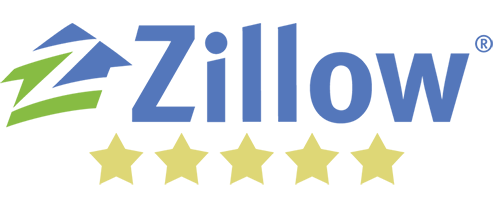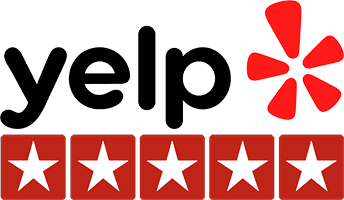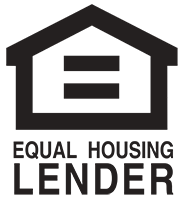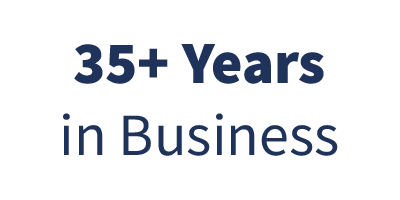Why should I work with Community First Mortgage?
If you are looking to purchase a home or refinance a mortgage – we like to think there is no better place to start than with Community First Mortgage for multiple reasons.
- Longevity – We’ve been in business since 1986. Which is a rarity in our business. The reason we are still in business – repeat business and referrals from past clients who are thrilled to work with us again or happy to refer family and friends to us. We greatly value our client’s trust in us.
- Terrific rates – Many prospective clients are floored by how much lower our rates are or how much less our costs are for the same rate they are being offered elsewhere – whether it be a big bank, direct lender, or another mortgage broker. Keep in mind, lenders discount their rates significantly enough to not only cover our compensation but enough where we can beat retail banks directly. It pays to work with a “middle man”!
- Motivated – Being a broker we are not compensated unless your loan closes and we know our clients won’t close unless we deliver on what we originally offered. Also, not only do we want to see our clients close on their new loan, but we want them to be so pleased with the process they are eager to refer their friends, family and coworkers.
- Options – if you work with a bank directly they may only be competitive on one product. Working with a broker we can shop your specific scenario with multiple lenders to see which lender will be the best fit. And by the way, if we are not the best fit we always point you in the right direction – whether that be a big bank or smaller credit unions for certain loan scenarios.
- Here is an article that dives a little deeper on why you should work with a mortgage broker and especially Community First Mortgage.
How much do you charge?
Our compensation is paid by the lender so any option we offer already includes
our compensation and unlike other lenders and brokers – we don’t charge any processing fees.
our compensation and unlike other lenders and brokers – we don’t charge any processing fees.
How long does the process take?
We can close a purchase loan in as little as 10 calendar days and we can close a refinance in as little as 15 days. Direct lenders like say they can close quicker than broker, but it simply is not true.
Are there any upfront fees?
No! Unlike many banks, we don’t collect your credit card information upfront before we lock a rate. We pay for your credit report upfront and we are only reimbursed if your loan closes and we don’t charge anything to lock a rate. Only if an appraisal is required (which is less and less often these days) would you have to pay anything before closing.
What if rates fall after I lock?
Another benefit of working with a broker! If rates fall .25% during the process we will move your loan to another lender if you are willing to restart the process or in some cases our lender will be willing to renegotiate your rate. Again, our whole business is based on referrals and repeat clients and clients only want to refer their friends or work with us if we deliver on the most competitive rates. Keep in mind, if you lock with a big bank, chances are you would have to find another lender entirely to secure a better rate and they certainly are not motivated to tell you if rates drop during the process.
Do I “skip” a house payment when I refinance?
Yes, in all likelihood and you might even skip two. With a refinance, if you were
to close on say March 10th, you will skip your April mortgage payment and March too if you didn’t make your March payment before we close. Be sure to check with your loan officer before making a mortgage payment to your old lender after locking in a rate. Keep in mind, you are only skipping the principal portion of your payment – you will still owe interest to the old and new lenders through closing.
to close on say March 10th, you will skip your April mortgage payment and March too if you didn’t make your March payment before we close. Be sure to check with your loan officer before making a mortgage payment to your old lender after locking in a rate. Keep in mind, you are only skipping the principal portion of your payment – you will still owe interest to the old and new lenders through closing.
Do you offer no-cost loans?
Yes! Unlike most all big banks and credit unions and the vast majority of mortgage brokers – most of our refinances are no-cost.
How is a no-cost loan possible?
Let’s say the market rate is 3%. The investor who is indirectly loaning you the money for your mortgage is earning 3% on their investment or savings. If you are willing to take a rate that is slightly higher say .25% higher than the market rate (3.25% in this example) the lender (and ultimately investor) is willing to pay you upfront for this benefit to them. If the lender credit is large enough ($3,000+) – this will be enough to cover all the loan costs. Here is an article that dives a little deeper on this topic.
Why am I bringing in money to close if this is a “no-cost loan”?
A free loan means you didn’t pay any fees for the new loan. The lender credit is large enough to cover any underwriter, appraisal, credit report, title, escrow, notary and recording fees, but a no-cost loan doesn’t mean the lender credit is going to cover any interest, insurance or property taxes due at closing. Interest, insurance and property taxes are items you would need to pay even if you were not refinancing. Here is a link to article that dives a little deeper into this.
What is an escrow account (or an impound account)?
An escrow account (aka an impound account) is kind of like a savings account
with the lender. Along with the principal and interest payment, you pay to the lender on a monthly basis – you will also pay the lender for your property taxes and/or homeowner’s insurance on a monthly basis. For example, using nice round numbers, if you were paying $12,000 in yearly property taxes (ouch!) and $1,200 a year for insurance, you could either pay your property taxes twice a year (April 10th and December 10th) when the County sends you the bill – $6,000 twice a year for property taxes and $1,200 a year for insurance or you can pay the lender $1,000 a month for property taxes and an additional $100 a month for insurance and the lender will pay your property tax bills and homeowner’s insurance bills when they come due. An escrow account allows a homeowner to more easily budget for the large property tax and insurance bills.
with the lender. Along with the principal and interest payment, you pay to the lender on a monthly basis – you will also pay the lender for your property taxes and/or homeowner’s insurance on a monthly basis. For example, using nice round numbers, if you were paying $12,000 in yearly property taxes (ouch!) and $1,200 a year for insurance, you could either pay your property taxes twice a year (April 10th and December 10th) when the County sends you the bill – $6,000 twice a year for property taxes and $1,200 a year for insurance or you can pay the lender $1,000 a month for property taxes and an additional $100 a month for insurance and the lender will pay your property tax bills and homeowner’s insurance bills when they come due. An escrow account allows a homeowner to more easily budget for the large property tax and insurance bills.
I have an escrow account with my current lender, can that transfer to the new lender if I refinance?
Not typically, no. Only if we refinance your loan with the same lender that your loan is currently with – which is not typical. What will happen if we can’t transfer your old escrow account to your new lender is – you will need to fund your new escrow account at closing and wait for a refund for your old escrow account after closing.
Do you collect a deposit?
No! Big banks and popular online lenders try to get their hooks in you by collecting a deposit upfront. Don’t fall for it! We don’t charge anything upfront before locking a rate.
How fast can you close a purchase?
In as little as 10 calendar days! Make your offer stand out by offering to close quickly. Lean on us to make it happen.






